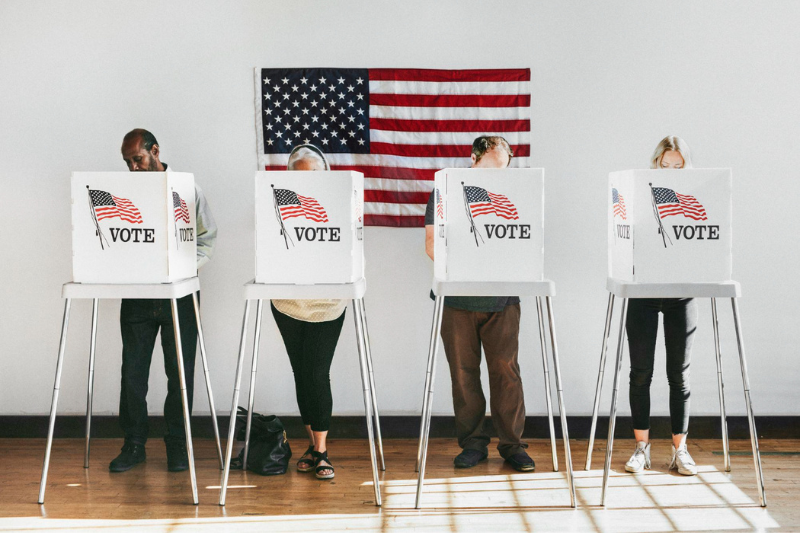The Swing Voter Project, an ongoing collaboration between Sago and Engagious, has returned to Wisconsin for its latest focus group round.
These online sessions give swing voters—those who voted for Trump in 2016 and then for Biden in 2020—the opportunity to weigh in on the most pertinent political topics for their country and their state.
Context for the Wisconsin Swing Voter Group
Eighty-one percent of Americans live in a one-party state, but don’t count Wisconsinites among them. Though Wisconsin may be the birthplace of the Republican Party, since 1945 the state has maintained a close balance between red and blue. In 2020 for example, Biden won Wisconsin’s electoral votes by a slim margin of 0.7 percent.
In March 2023, we asked our 12 swing voters about post-pandemic life, youth mental health, the banking crisis, TikTok, and more. Here are the highlights.
On the Top Issues
So at this point in American history, what’s keeping our panel up at night?
More than half of the group were quick to mention the economy and inflation. Other responses included the potential for war, banking failures, transgender rights, and our continuing financial support for Ukraine.
On the Supreme Court Race
The two candidates vying for a seat on Wisconsin’s Supreme Court in 2023 are Janet Protasiewicz (liberal) and Daniel Kelly (conservative). It’s one of the highest-profile Supreme Court races in the country, so it would be interesting to note which direction swing voters are leaning in. As for our small sample, the “votes” are in:
- 4 for Janet
- 3 for Kelly
- 3 Undecided
- 2 Not Voting
Only time will tell if this mock election is an accurate snapshot of the larger voter base.
On Post-Pandemic Life
When asked to share the most profound permanent change to their life as a result of the pandemic, only three out of the 12 participants reported that life was back to normal. The rest of the group had a mix of positive and negative changes to report.
Positive:
- Working remotely/from home
- Learning to become more self-sufficient
Negative:
- Financial/professional hardships
- Social isolation
- Less trust in others
On Youth Mental Health
All 12 of our respondents claimed to know at least one young person who is struggling with their mental health. When asked what they believed to be the underlying cause of youth mental health challenges, several were quick to point to social media.
And how many in the group believe that social media is harming young people’s mental health? All 12 hands in the air.
On the American Dream
What does it mean to be free to pursue the American dream? Our swing voters came up with some incredible answers to this question:
“The freedom to love who you wish, worship who you wish, pursue your just cause for your goals and dreams in the way that you see fit, and being able to advance your life or lifestyle in any way that is [legal].”
“A life of happiness and fulfillment that doesn’t infringe upon the same for another.”
“I think it’s more of a natural order thing, that you’re free to live your life without other people dictating it for you.”
“[It’s an] open concept.”
On China
We devoted the most time from our sessions to discussing the American consumer’s relationship with China. Here’s the gist of a complicated situation, from the perspective of our Wisconsin swing voter panel.
- Sentiment 1: China may very well be an economic threat to the U.S.
- Sentiment 2: China is not a military threat to the U.S.
- Sentiment 3: America becoming less reliant on China (and other countries) is an important goal.
“Obviously, it’s a very populous, technologically savvy, innovative nation–population and the ability to do many of the same things we can do is a threat. Not saying that they’re an enemy, but definitely a threat.”
On Banning TikTok
For context, the House Foreign Affairs Committee recently voted 24-16 along party lines to advance the Deterring America’s Technology Adversaries Act, or DATA Act, to give Biden the authority to enact nationwide bans on software applications that are deemed a national security threat.
Only four of the 12 respondents from our group support the legislation described above. The dominant sentiment of the group is that giving such power to the president would be a slippery slope.
“I’d say there is perhaps a slippery slope argument to be made here in terms of banning other applications and things…But there is nuance here, absolutely, and the government could go way too far on this; it could just be extreme censorship and these are dangerous waters to tread.”
If our focus groups with Wisconsin swing voters are any indication, policymakers have a hard row to hoe before they convince constituents of the existential danger posed by China and the importance of banning TikTok.










 5 Minutes
5 Minutes 












